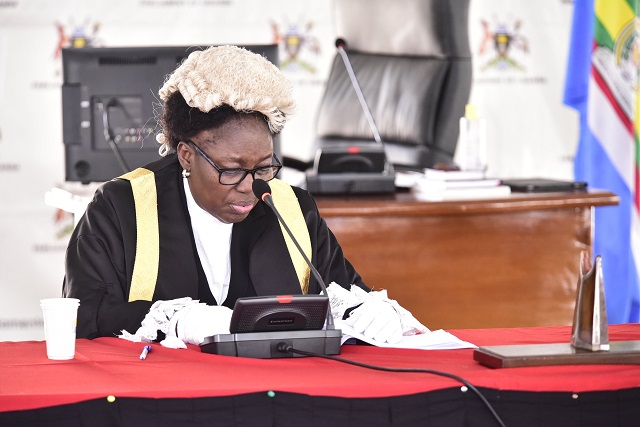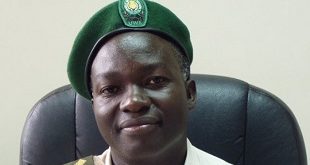
Kampala, Uganda | THE INDEPENDENT | The Legal and Parliamentary Affairs Committee has rejected a proposal seeking to establish a Speaker’s panel.
In his Constitutional (Amendment) Bill, 2019, the Shadow Attorney-General Wilfred Niwagaba proposed a new Article in the Constitution introducing a Speaker’s panel.
The Bill proposed to restrict the appointment of the Speaker’s penal to only backbench Members of Parliament and to allow such persons appointed on the Speaker’s penal to preside over sittings of the House in the absence of the Speaker and Deputy Speaker.
Currently, the Constitution provides for two persons to preside over the House and these include the Speaker and the Deputy Speaker. Article 82 of the Constitution also prescribes how these will be elected, how they leave office, their emoluments and their subscriptions of their oaths of office.
But the committee in its report observes that even when the proposal is a desirable practice, it would contravene Article 93 of the Constitution since it would be creating a constitutional position that would require facilitation and other pacts.
The introduction of the Speaker’s Panel was first discussed during the Constitutional amendment of 2015, among the proposals that the opposition had sought to include in the Constitution.
“The Committee notes that there is need for the appointment of persons to assist the Speaker and Deputy Speaker in presiding over the House especially where the Speaker and Deputy are indisposed or are not available to preside over the House. This will ensure that Parliamentary business is not affected when the Speaker or Deputy Speaker is unavailable to preside over the House. The Committee also notes that it is now considered an international best practice in most Commonwealth countries to have additional persons who can preside over the House in the absence of the Speaker and Deputy Speaker,” reads part of the report yet to be discussed by parliament.
However, the Committee chaired by West Budama South MP Jacob Oboth recommends that this should be taken up for consideration during the Constitutional review process.
Some of the countries with a Speaker’s Panel are Australia, Kenya, United Kingdom, India and others.
In Australia, at the commencement of every Parliament, the Speaker nominates a panel of not less than four members to assist. Generally, the Speaker appoints both opposition and government members to the Speaker’s panel, with government members being in the majority.
On the other hand, Kenya’s Constitution under Article 107 (1) (c) provides other persons who can preside over the House other than the Speaker or Deputy Speaker. The Article provides that in the absence of the Speaker and the Deputy Speaker, another member of the House elected by the House presides.
Speaker of Parliament Rebecca Kadaga has in the past called for a panel of Speakers to help preside over parliament sittings. Parliament’s afternoon sittings are scheduled to start at 2 pm but the Speaker often fails to appear on time due to several other meetings.
In her recent appeal made in October 2019, Kadaga appealed to Members of Parliament to plan and move a motion about having in place a panel of speakers who will be charged with presiding over the House when the Speaker and Deputy Speaker are attending other engagements.
After the June 2019 State of Nation Address, Kadaga said that government needed to consider as a matter of urgency, the review of Article 82 of the Constitution, which concerns the Office of the Speaker of Parliament. Kadaga then noted that the Article gives the Speaker and the Deputy Speaker the mandate as the only officials to preside over Parliament.
Since the 6th Parliament, MPs and members of the public have been engaged in the discussion and have proposed that the Speaker and the Deputy Speaker should be assisted by a speaker’s panel.
Failure for a Speaker or the Deputy to appear for a plenary session affects the way parliamentary business is conducted.
******
URN
 The Independent Uganda: You get the Truth we Pay the Price
The Independent Uganda: You get the Truth we Pay the Price



